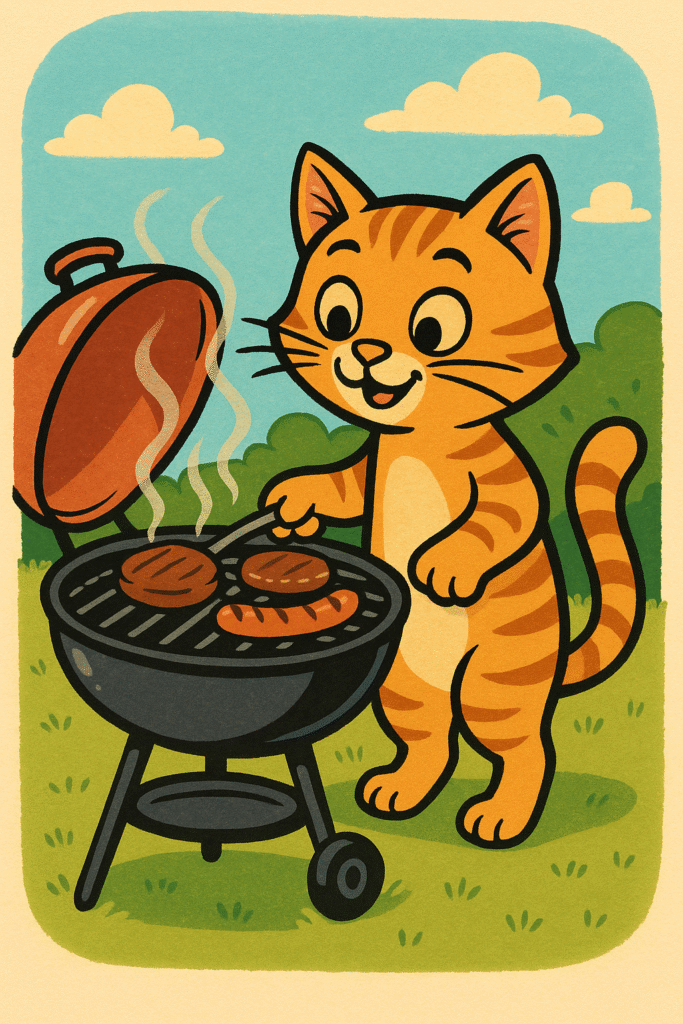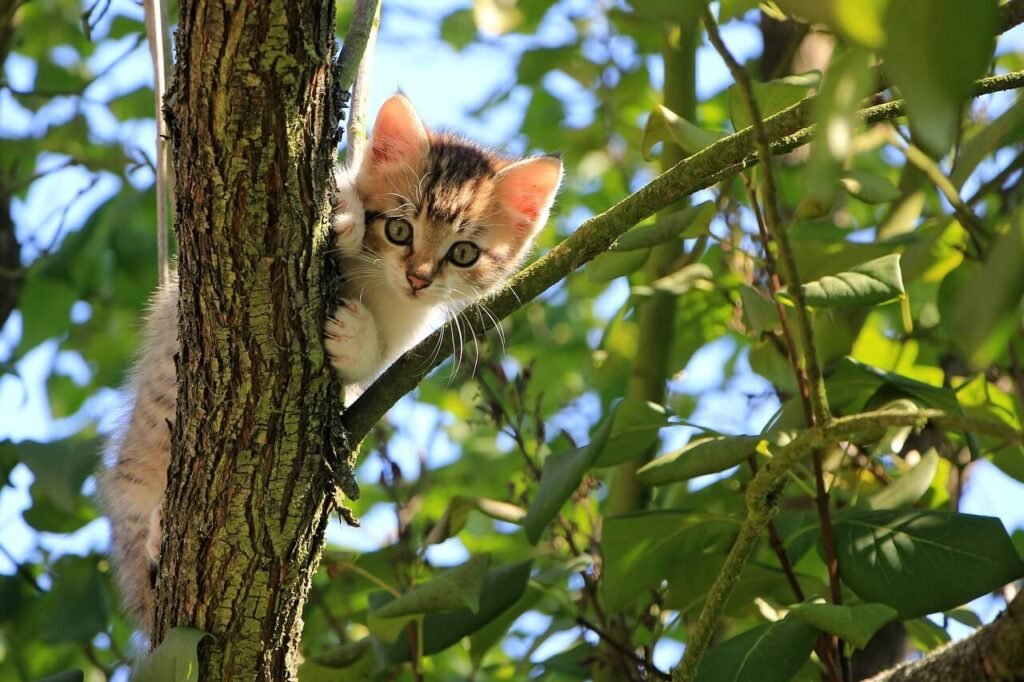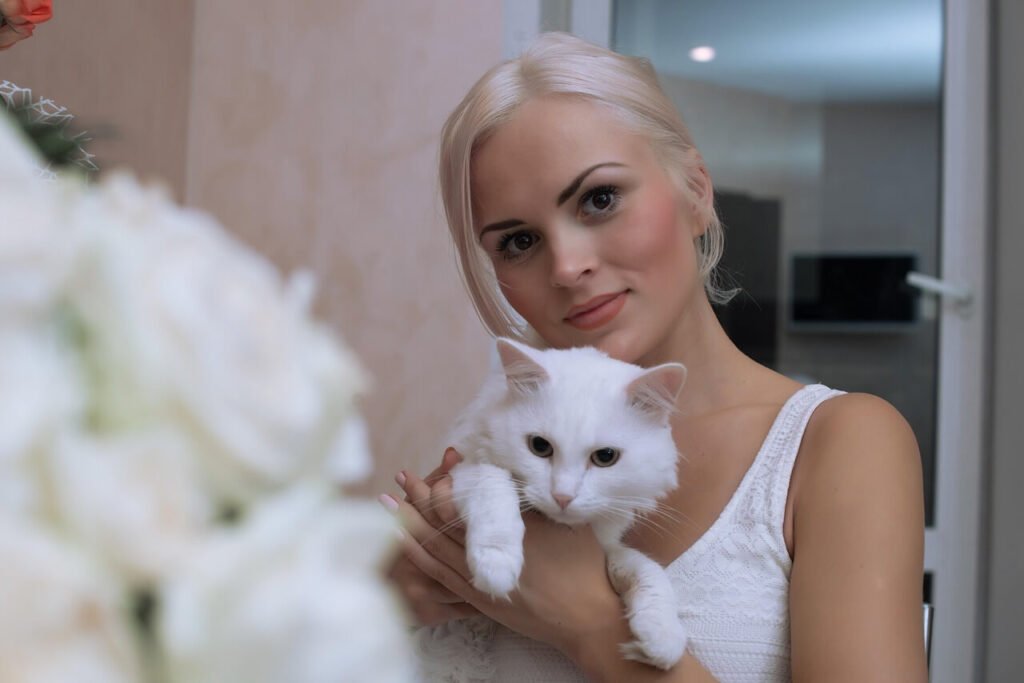If you’ve ever caught your cat eyeing your dinner plate with that irresistible “feed me” face, you’re not alone. Cats are curious by nature—especially when it comes to what you’re eating. But can cats actually eat human food? And if so, what’s safe and what’s not? Let’s dig in (pun intended!) and find out which people foods are okay to share—and which ones you should never let your kitty nibble on.
Safe Human Food Cats Can Eat
Here’s the good news: some human foods are completely safe—and even healthy—for cats in small amounts.
Cooked Meats: Cats are obligate carnivores, which means meat is essential in their diet. Lean, cooked meats like chicken, turkey, and beef (without seasoning or bones) are a safe bet.
Cooked Eggs: Eggs are protein-packed and safe for cats when fully cooked. Scrambled or boiled—hold the butter, salt, and seasoning!
Certain Vegetables: Some cats surprisingly love veggies. Safe options include:
- Steamed carrots
- Cooked green beans
- Peas
- Spinach (in moderation)
Plain Rice or Oatmeal: These can be soothing for sensitive stomachs and are okay in small amounts.
Pumpkin (Pureed): Great for digestion and a common natural remedy for constipation.
Small Bits of Cheese: Not all cats can handle dairy, but some tolerate tiny amounts of hard cheese. Test slowly to see how your kitty reacts.
Try these treats for your furry friends! Instinct Raw Boost Mixers – Freeze-Dried Chicken Treats – Real, raw meat treats that make a healthy, feline-approved topper for meals.
Toxic Foods for Cats

This part’s important. Some human foods are downright dangerous—or even fatal—for cats. Always keep these away from curious paws:
Onions and Garlic: In fact, even small amounts (raw, cooked, powdered) can damage red blood cells and lead to anemia.
Chocolate: Contains theobromine and caffeine, which are toxic to cats. Even a little can cause tremors or heart issues.
Grapes and Raisins: Can cause kidney failure—even a single grape can be dangerous.
Alcohol: No sipping from your wine glass! Alcohol is extremely toxic to cats and even a small amount can lead to serious complications.
Caffeine (Coffee, Tea, Energy Drinks): Too much caffeine affects the heart and nervous system. Keep those mugs and cans out of paw’s reach.
Raw Dough or Yeast: Uncooked dough can expand in your cat’s stomach and cause serious bloating or even alcohol poisoning.
Bones and Fat Trimmings: Bones (especially cooked) can splinter, and fat trimmings can lead to pancreatitis.
Helpful Resource: Pet Poison Helpline Magnet – Keep emergency info on your fridge in case of accidental ingestion.
What About Milk?
It’s a common myth that cats love milk—and while they may enjoy it, most adult cats are lactose intolerant. Milk can cause diarrhea or an upset tummy. Stick to lactose-free cat milk if you want to indulge them.
Safer Option: Lactose-Free Milk – Tummy-friendly and loved by many felines.
Feeding Tips: Sharing Safely
- Small portions only: Human food should be a treat, not a meal replacement.
- No seasoning: Salt, pepper, and spices can be harmful.
- Watch for reactions: Vomiting, diarrhea, or odd behavior? Call the vet!
- Stick to a balanced diet: Your cat’s main nutrition should still come from high-quality cat food.
Treats with Care
Sharing food with your cat can be fun and rewarding—but always do it with care. Now that you know which human food cats can eat and which toxic foods for cats to avoid, you’re better equipped to keep your kitty safe and satisfied.
When in doubt, skip the snack and stick to vet-approved treats.

